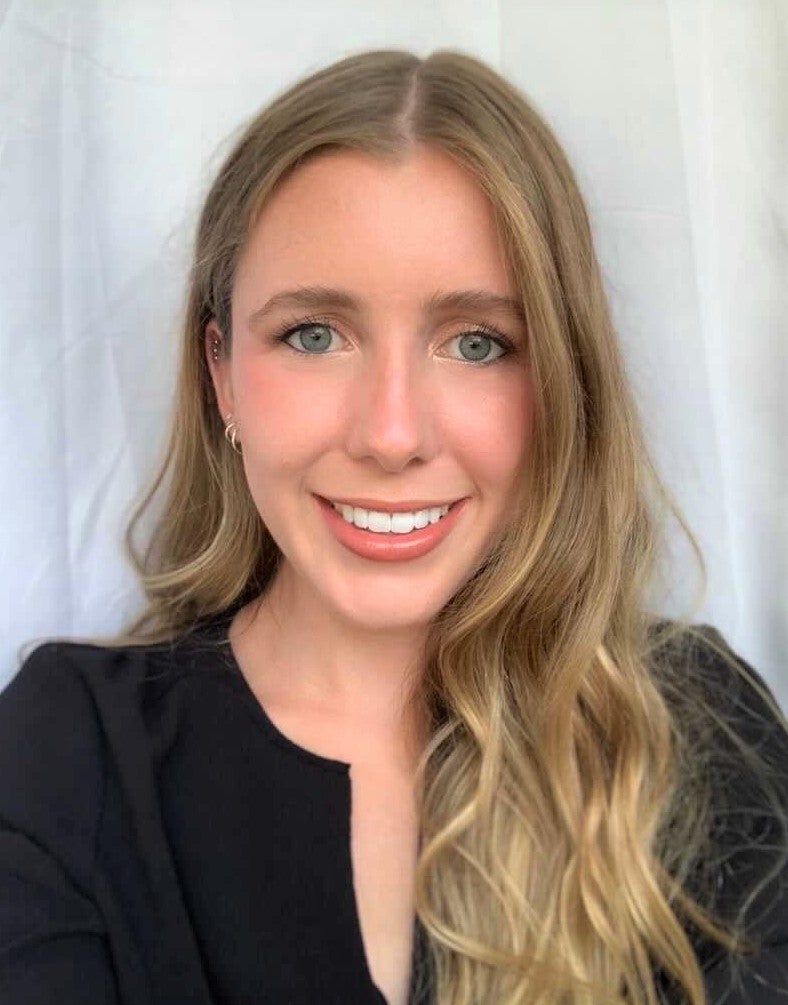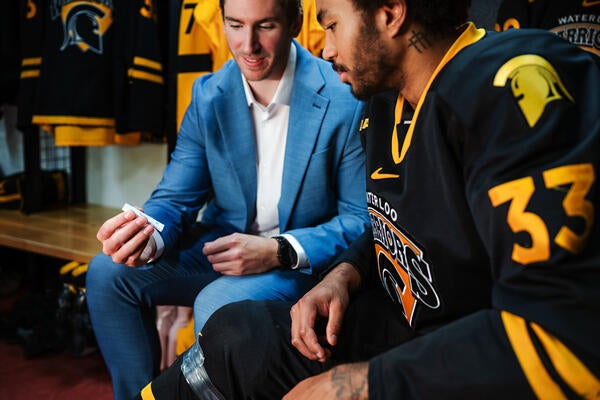
Inspired by seaweed
Waterloo Engineering graduates make global finals of high-profile contest for student inventors

Waterloo Engineering graduates make global finals of high-profile contest for student inventors
By Brian Caldwell Faculty of EngineeringA flame-retardant product inspired by seaweed has earned two recent Waterloo Engineering graduates a spot in the finals of a prestigious international design competition.
Anneke van Heuven (BASc ’21) and Elias Trouyet (BASc ’21), two of the three founders of startup company AlgoBio, were named today to the global top 20 for the 2021 James Dyson Award, an annual showcase for student inventors.
That means van Heuven and Trouyet, who developed a safe, non-toxic coating to retard flames with two classmates as their fourth-year Capstone Design project, are still in the running for a $50,000 prize in a contest that began with more than 2,000 entries from 28 countries.

Tessah Costello of AlgoBio.
"It is so exciting and such an honour to be recognized on a global scale, especially by an award that recognizes the importance of innovation," said van Heuven, chief executve officer of the Waterloo-based company.
The entrepreneurs had just started the nanotechnology engineering program at the University of Waterloo when they learned that chemicals in most materials to prevent consumer and industrial products from burning can cause long-term health effects including cancer.
Extensive research with classmates Tessah Costello (BASc '21) and Abby Bull (BASc '21) led them to seaweed, which has natural flame-retardant qualities.
The team combined a biopolymer made from seaweed with embedded nanoparticles to develop two non-toxic, environmentally friendly coating formulations that easily exceed industry requirements.
Trouyet, van Heuven and Costello founded AlgoBio to pursue commercialization and are now collaboating with a number of other companies. Costello, head of product operations for the company, wasn't part of the initial Dyson entry.
AlgoBio was named a Canadan finalist in August to advance to the international stage of the contest, which involved judging by a panel of 15 engineers at Dyson, maker of popular bagless vacuum cleaners.
Exposure from its national success has already given the startup a boost. It has since created a powder form of its product with potential to reach other markets and entered the Creative Destruction Lab accelerator program.
James Dyson, the founder of the company, will hand-pick a $50,000 winner, a $50,000 winner in a sustainability category and two runners-up from the top 20 in mid-November.
"It feels like we are making waves and getting noticed, and it feels surreal," said Trouyet, the chief technology officer.
Teams from Waterloo Engineering have a long record of success in the Dyson competition, which challenges university students to develop innovative products that solve tangible problems.
Last year, five 2020 nanotechnology engineering graduates – Holden Beggs, Alisha Bhanji, Ishan Mishra, Fernando Pena and Zhenle Cao – finished in the top four internationally with startup Scope Photonics and its smartphone camera zoom technology.

Read more
Upside Robotics secures new funding to accelerate the future of sustainable farming

Read more
Redefining capstone learning by bringing students, faculty and community partners together to tackle real-world challenges

Read more
New medical device removes the guesswork from concussion screening in contact sports using only saliva
The University of Waterloo acknowledges that much of our work takes place on the traditional territory of the Neutral, Anishinaabeg, and Haudenosaunee peoples. Our main campus is situated on the Haldimand Tract, the land granted to the Six Nations that includes six miles on each side of the Grand River. Our active work toward reconciliation takes place across our campuses through research, learning, teaching, and community building, and is co-ordinated within the Office of Indigenous Relations.